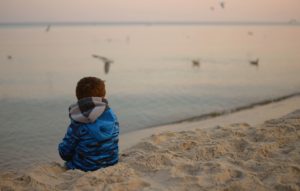
Recently, I had the privilege of taking a course called Torah for the End (and Beginning) of the World, through SVARA, the traditionally radical yeshiva. SVARA, unlike most of the world, centres the experiences of queer, disabled and otherwise marginalised people.
The instructor, Rabbi Elliot Kukla, brought us texts from the Talmud, and also texts and videos from disability and environmental activists. One highlight that stays with me from that course is the importance of making space for grieving loss. We might be grieving a beloved person who is gone (and with this pandemic, who isn’t?), the activities we were able to access before becoming sick or disabled and now can’t because of ableism and universal lack of empathy, or the many species of beautiful creatures that flourished in our world and are now gone.
In Western capitalist culture, grief is not considered a priority, and ambitious people can expect a negative effect on their careers if they take time off work to grieve a loss. But it goes deeper than just economics and the desire to extract as much work as possible from the human cogs in the machine. The other day I heard someone I know, who has recently discovered fundamentalist Christianity, explain completely unironically that he no longer feels bad about anything that happens because he knows that G-d is guiding him and that these things happen for a reason.
Acceptance is not a bad thing, of course – it is the final stage of the grieving process described by Elisabeth Kübler-Ross in her famous 1969 book, the ones preceding it being denial, anger, bargaining and depression. Without acceptance, it is not possible to move on with our lives after a tragedy or loss. However, I have concerns about people who insist on jumping directly to that final stage without acknowledging the loss and the grief that comes with it. This kind of toxic positivity does not allow us to move through the required stages, and can actually cause us to get stuck in trauma rather than healing from it.
Fortunately, Rabbi Kukla’s class is not just about the End of the World, but also about the Beginning – the hope of restoration of the environment, of educating others so we can defend our society from ableism and violence, of the creation of something new and wonderful so our children and their children have a better world to live in. Hopelessness and despair will not help us get there, and neither will pretending there is nothing wrong and that everything is as it should be in this best of all possible worlds.
We need to feel our feelings, grieve our losses, and then get up and take action as a community. I believe that that will get us to a better world. Will you join us?
